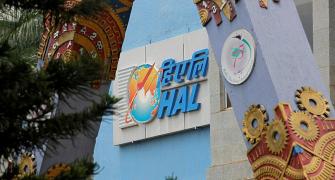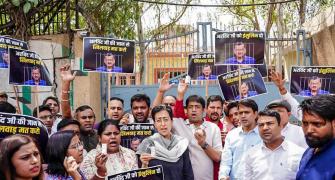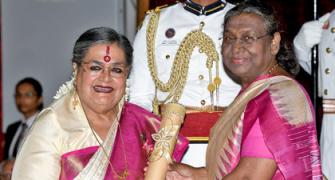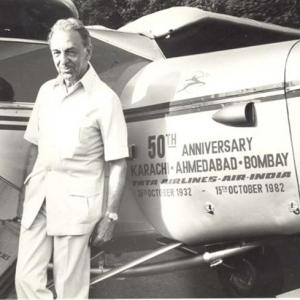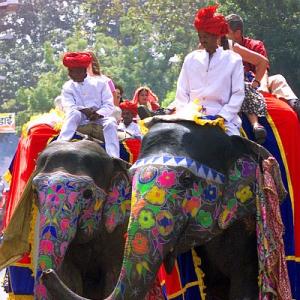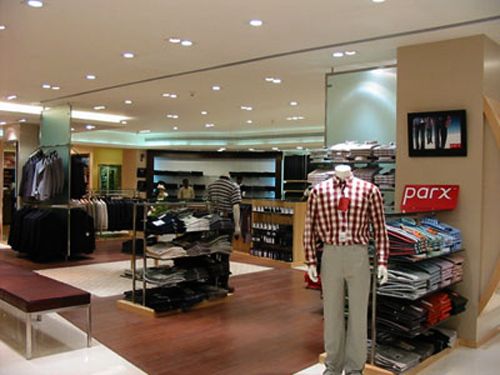
Laws are ambiguous over ownership and exclusivity of brand names
In August this year Interglobe Aviation, the parent company of airline brand IndiGo, mentioned in its draft red herring prospectus that it faced ownership title risk. Tata Motors claimed that use of the Indigo trade name infringed the trademark for its sedan brand, badged Indigo that was launched in 2002.
(The two names are written differently and while one flies the skies, the other rides the roads).
But in the end Tata Motors decided to let the issue rest and Interglobe, having just closed an IPO, will hope the controversy was nothing more than a temporary hiccup.
However, can a company claim sole right over a name? And when a brand becomes popular can it stop another company hitching a ride on its brand equity, albeit in a different product or service category?
There are several examples of one name standing in for many brands.
Many pesticide and adhesive products use the Maruti name -- eponymous to country’s largest passenger car maker.
A hosiery maker from Bengal widely advertises Amul-branded innerwear (as against the household dairy brand owned by Gujarat Co-operative Milk Marketing Federation, which has recently got the well-known trademark that protects its name from being used by anyone else in any category).
A local footwear brand shares its name with HUL’s Rexona soap. And the name Star adorns everything from a television channel, to cement, to realty companies and retail stores.
Claiming the name
For a brand name, a company has to apply to the trademark registry, which grants a registration provided there is no earlier registered, or earlier pending trademark that is identical or ‘deceptively similar’.
The simple thing to do before naming a product or a service, lawyers say, is to run an Internet search and see if there are other claimants to the label.
The registry can reject a name if it believes there is an attempt to deceive.
But the test for deceptive similarity is a subjective one and 'applies typically to phonetic equivalents (in word marks) or visually similar (in logo marks) provided they pertain to the same or similar goods or services,” says Shwetasree Majumder of Fidus Law Partners. She adds that a trade mark can be a word mark or a logo mark.
“So NIKE as a word is a trademark and the Nike swoosh sign is a logo and is also a trademark,” she says.
The key words here are ‘similar goods and services’, so IndiGo the airline can claim its name as can Tata Indigo since they are in dissimilar categories.
However if the owner of the registered trademark can establish that the trademark is ‘well-known’ regardless of the product or service, there is ground to object, notes J Sai Deepak, associate partner, Saikrishna & Associate. Amul, Nirma, Bisleri are all ‘well-known’ brands.
Fighting the copycats
The redressal process for trademark infringement for all brands is tedious.
Intellectual property experts say all goods and services are divided into 45 classes, and form part of the schedule to the Trade Marks Rules, 2002.
Any application for registration of a trademark is advertised in the Trade Marks Journal, this is meant to filter out any opposition to the name before proceeding to registration.
“In case an opposition has been filed, the trademark is only registered after the opposition has been dismissed,” notes Anuradha Salhotra, founding partner at Lall, Lahiri & Salhotra. If a trademark is inadvertently registered while an opposition is pending it will be removed from the register, adds Salhotra.
And what if the company continues to use the brand name despite this? Sai Deepak says that the owner of the registered trademark can complain to the Registrar of Companies.
“Until the opposition has been dealt with, and dismissed, the trademark cannot be registered,” says Sai Deepak.
In IndiGo’s case the trademarks were cleared for registration, the marks were advertised, and then opposed by Tata Motors.
Typically, to resolve the issue, both sides have to file their replies, backed by evidence.
That process could take anywhere between two to four years, say lawyers.
“If the court felt that both parties have enough reputation and an ‘honest’ and ‘concurrent’ use, they may both be allowed to co-exist with Indigo being asked to narrow its specification of goods and services to cover only those that are aviation related,” says Shwetasree Majumder. Clearly, getting the last word on trademark rows in the country is a Herculean task.






